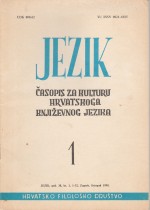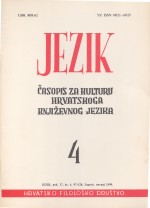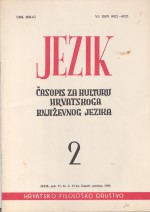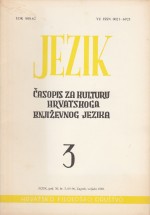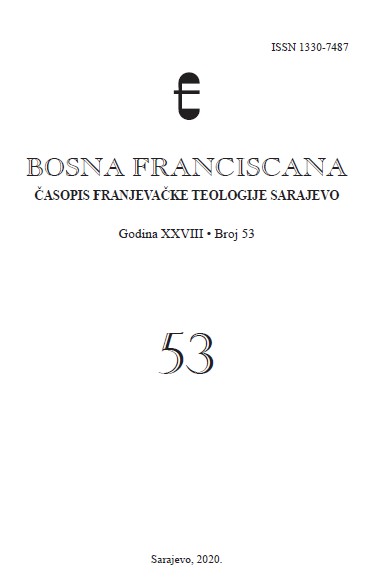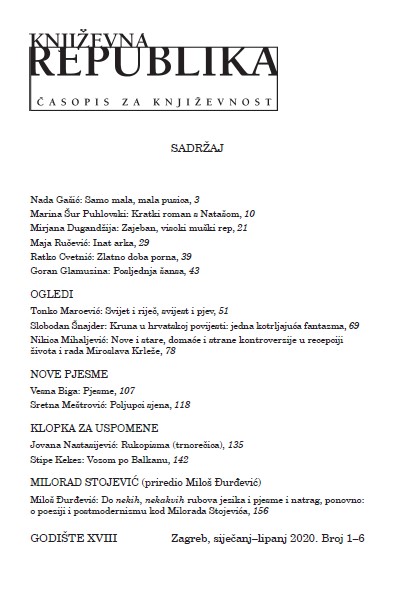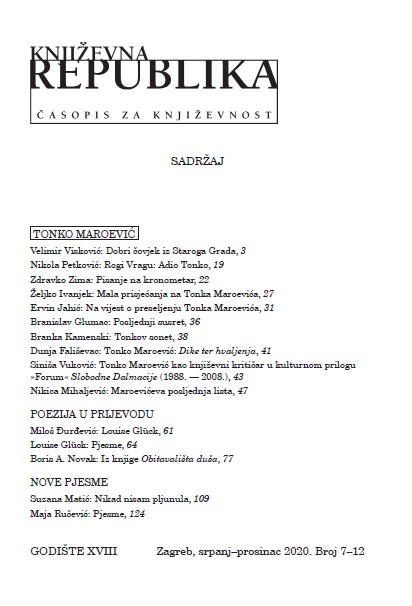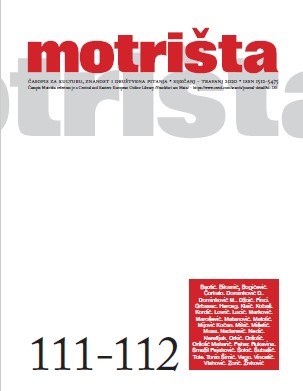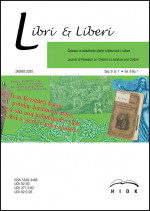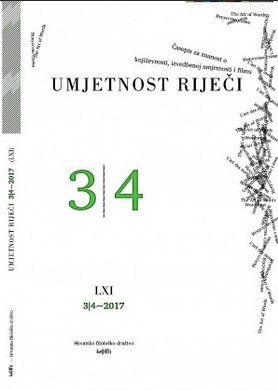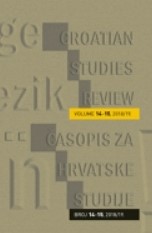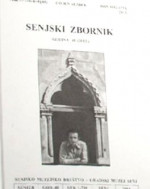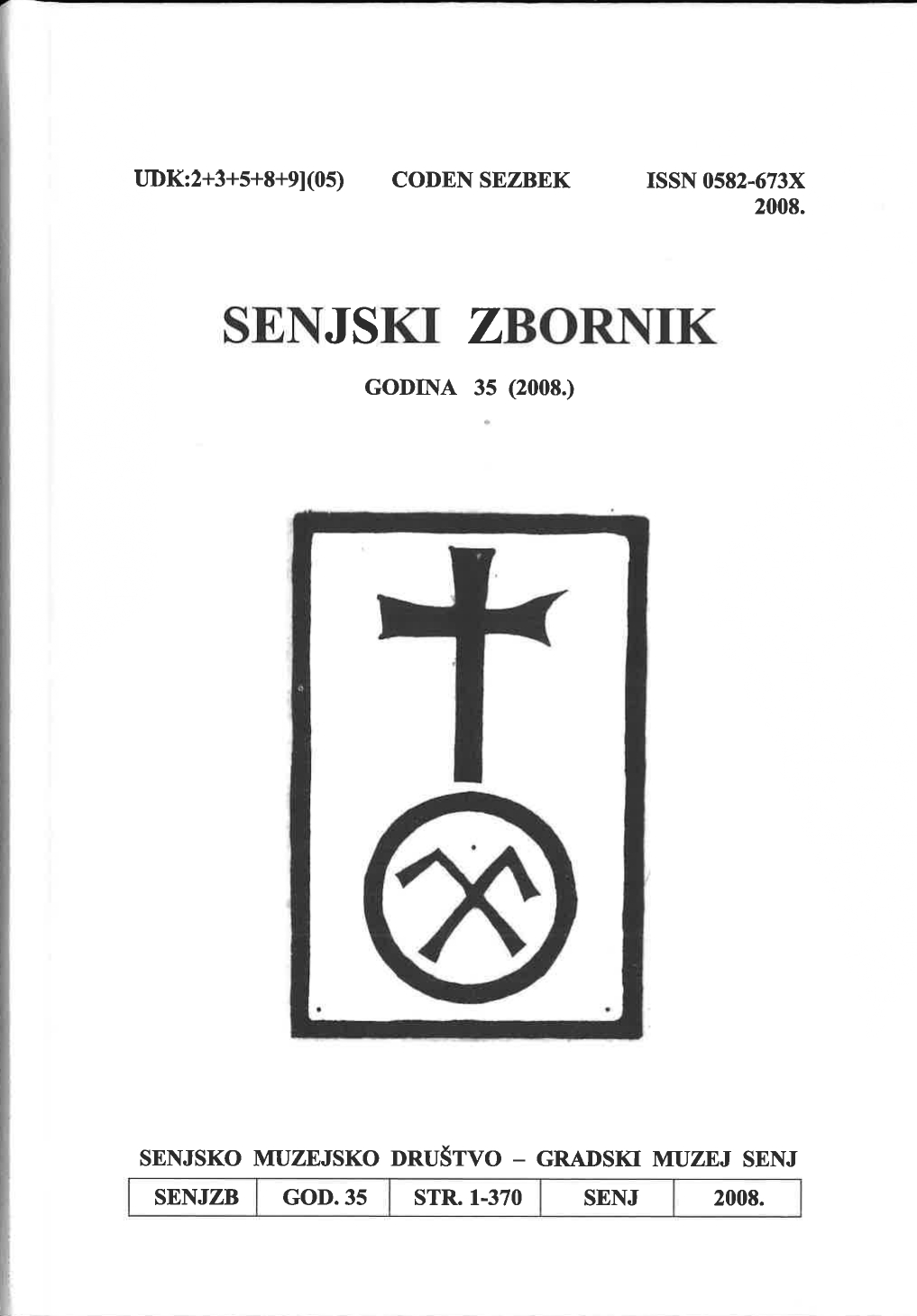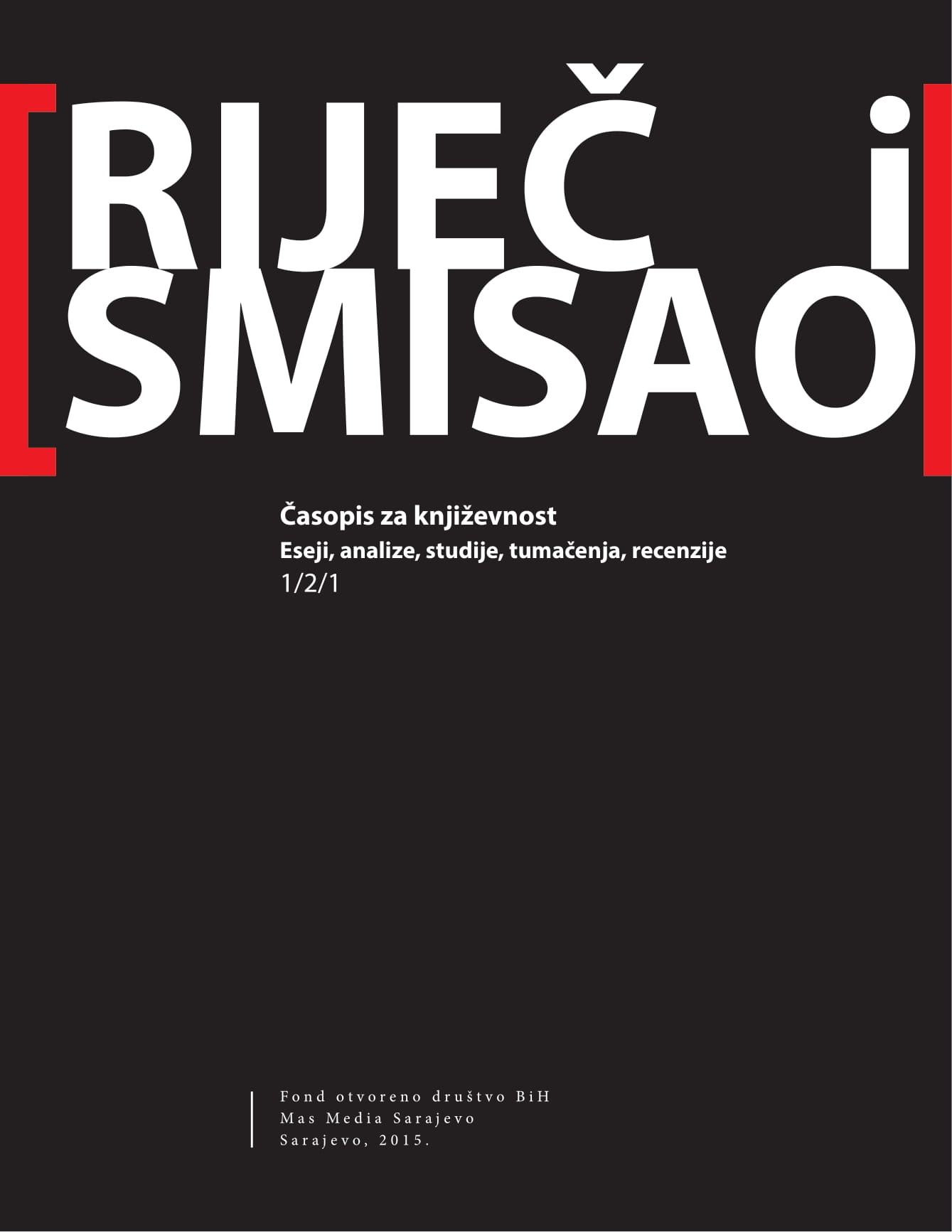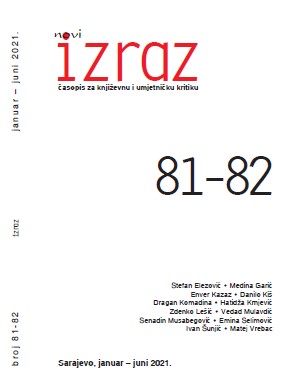Author(s): Miroslav Mićanović / Language(s): Croatian
Issue: 01+06/2020
Uputa za upotrebu: ako ljetuješ kraj mora, ustani ujutro u šest, idi do stijena, gdje je voda duboka i bliješti, skoči na glavu, plivaj dvadeset minuta. Osuši se na suncu, zapali, čitaj pjesme i idi doručkovati. U osami kreni kroz šumu na kupalište, polako, tamo se sunčaj, kupaj se do pola dvanaest, skupljaj školjke, puževe, plivuckaj, skači, igraj se žabica, gradi zamak od pijeska, usto meditiraj nad velikom tezom svijeta. Bolje je usred sunčanog ljeta kupati se u moru, nego zimi raditi u mračnom uredu. Ako si i s time gotov, još jedanput uroni u more, osuši se, obuci laganu pidžamu, polako idi do gostionice, sjedni za stol i, dok donose juhu, pročitaj sljedeće...
More...
